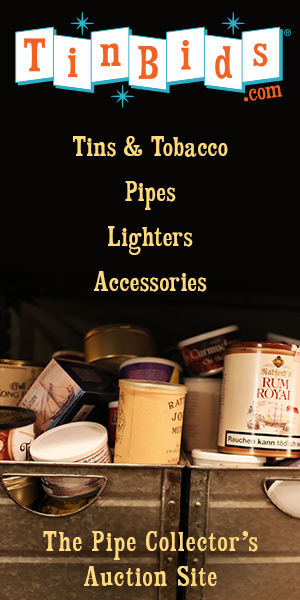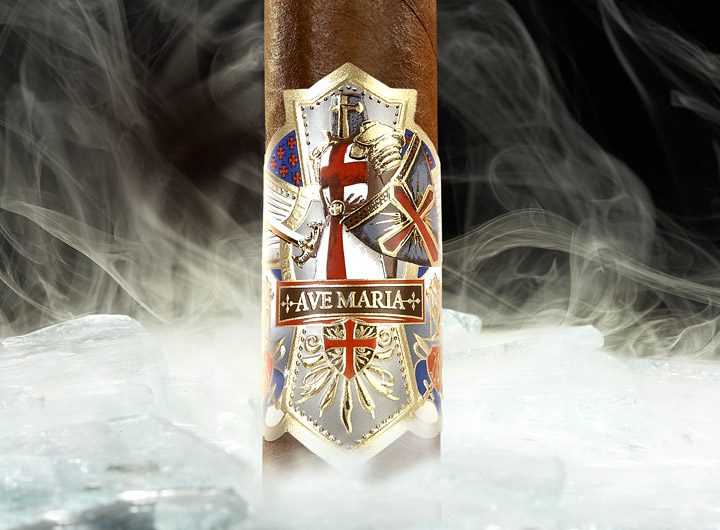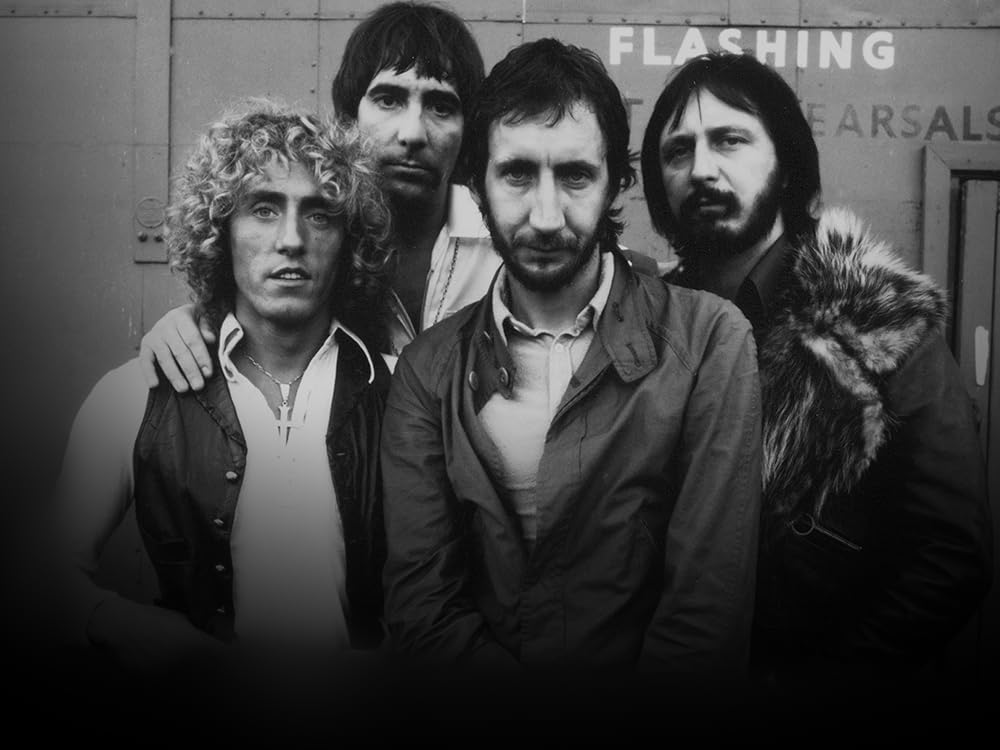My jokey post was misguided. The Canadians would never indulge in such coarse language. It would be just as insulting in Canada if the label read, "Your Mother Is The Subject of Rumors." Lord, I miss manners, composure, decorum, moderation. It's not even fun to cuss when high school girls are streaming profanity blue blazes. Now a long stream of profanity is just ... conversation.
No More Artistic Cigar Labels (Canada)
- Thread starter olkofri
- Start date
You are using an out of date browser. It may not display this or other websites correctly.
You should upgrade or use an alternative browser.
You should upgrade or use an alternative browser.
SmokingPipes.com Updates
Watch for Updates Twice a Week
- Status
- Not open for further replies.
Good points, Simenon. Some of which, such as counterfeiting, I hadn't even thought about.
I don't. I import most of my tobacco, for tax reasons. As a matter of fact, I'll be buying my first cigars in Canada when I drop by Jade's later this week, God willing, to buy at least 3. I haven't bought tobacco in a while due to financial constrains, but I think the local tobacconist deserves some support.
Personally, I'm not known for signing petitions, I am not an activist, I tend to stay out of politics, and I was hesitant to post this thread, but it dawned on me that there's a time when one must make a stand, because, at its core, this is not so much an issue of pretty labels or even tobacco, but of freedom. As in the 1942 Dieppe Raid, Canadians are once more badly outnumbered in facing a vicious regime—and like said Raid, this anti-socialist effort will probably fail, but a stand must still be made nonetheless. It is deplorable that so many Canadians have come so far from those brave souls who sacrificed themselves for future rewards to be reaped by others to the current state of 'what's in it for me', 'it doesn't hurt me so I don't care'.
Bah! How many Canadians actually buy their cigars in Canada?
I don't. I import most of my tobacco, for tax reasons. As a matter of fact, I'll be buying my first cigars in Canada when I drop by Jade's later this week, God willing, to buy at least 3. I haven't bought tobacco in a while due to financial constrains, but I think the local tobacconist deserves some support.
Personally, I'm not known for signing petitions, I am not an activist, I tend to stay out of politics, and I was hesitant to post this thread, but it dawned on me that there's a time when one must make a stand, because, at its core, this is not so much an issue of pretty labels or even tobacco, but of freedom. As in the 1942 Dieppe Raid, Canadians are once more badly outnumbered in facing a vicious regime—and like said Raid, this anti-socialist effort will probably fail, but a stand must still be made nonetheless. It is deplorable that so many Canadians have come so far from those brave souls who sacrificed themselves for future rewards to be reaped by others to the current state of 'what's in it for me', 'it doesn't hurt me so I don't care'.
I will add that cigar ring labels make it much easier to counterfeit a cigar. I just put ring labels on a brick, and sell them to the first idiot who cannot tell the different leaves apart by look, texture, and aroma.
It's much harder to counterfit actual quality.
It's much harder to counterfit actual quality.
I have no plans to delve too deeply into the history of branding here but brands evolved for a reason - customers wanted authentic and reliable products that they could trust and instantly recognize because the alternative was often adulterated and dangerous. Our desires to get what we paid for haven't changed even if we are discussing something less urgent and more subjective like a tobacco's smoking quality.
I constantly hear complaints about brands going downhill as recipes are altered or as blenders change hands so this is an issue with great relevance to pipe smokers.
Brands are often a company's most valuable asset. They are bought and sold for billions of dollars because they are crucially important in the business world.
Plain packaging laws debase the brands, the key assets, of tobacco companies. Brands generate the revenue for these tobacco producers and without them the producers themselves are jeopardized. If these tobacco producers are jeopardized, then so are your favourite tobacco products.
Cosmic, you are forgetting that Lane Limited is basically just a collection of brands as they are no longer an independent company. They are owned by the Scandinavian Tobacco Group. Their portfolio is also much larger than you suggested because their brands include Captain Black, Bugler, Winchester and tinned Lane pipe tobaccos such as the Ready Rubbed blend and not just generic aromatics. My point is that the Lane name carries meaning with consumers (as you just demonstrated with your statement about its aromatic line) and that is what's worth the most money - not the ability to manufacture tobacco in the face of declining markets. Anyone with enough capital and machinery can start physically producing tobacco overnight but it is branding that takes years to develop. If tobacco is reduced to a generic commodity then we can say goodbye to nuanced blends with perique and latakia and instead just stuff our pipes with whatever bulk floor sweepings we can find on sale.
Quality tobacco products are a means to an end - profit making. If the financial side of the equation gets affected enough by this kind of government legislation, the tobacco producers will go into survival mode and adjust their business model accordingly. That means some low margin or underperforming or expensive-to-manufacture specialty pipe tobacco and cigars brands will get the axe.
The executives won't consult TobaccoReviews first to make sure they are sparing 4 star blends, they will look at sales and what brand equity is left in the name alone. Look at Prince Albert - a fading brand with a joke of a name that means something very different to younger consumers. It's discontinued after decades of being a market leader. RIP codger blends but it is a sign of things to come...
As for C&D, you will notice that Laudisi made an effort to modernize and improve their tin art after they were purchased from the Tarlers because the branding was weak and diluted. Sometimes companies survive in spite of themselves because they offer a decent product overall but they are very much the exception to the rule.
I should also note that Dunhill unceremoniously killed their pipe tobacco line but kept the branding rights for cigarettes. That tells us all we need to know about which category was making them money and what conglomerates like BAT think about when they are making decisions...
Customers all over the world have been concerned about counterfeit Cuban cigars for years. Do you think a law that requires manufacturers/distributors to remove anything that uniquely identify their products will make that situation better or worse? How will anyone have confidence that they are receiving the authentic product? Faith in the government's supervision?
Furthermore, how is one supposed to determine actual quality when all cigars are packaged in identical olive drab boxes with no information on them and you are unable to try them in store because samples are forbidden and no smoking laws are in effect? Would you just buy one of everything in the shop and keep a detailed ledger tracking your preferences? Trial and error is a terrible method if one has a limited budget.
This leads me to my last point. In Canada, product selection has already been whittled down to suit the tastes of the lowest common denominator in most places because of the unreasonable restrictions and taxes in place. How can one rely upon their senses alone to determine quality if most of what's available is garbage? You can't tell what's good if you don't have access to quality products in the first place. Branding resources like trade reviews and information from suppliers about growing conditions and constituent tobaccos help people stay informed and avoid bad products without having to smoke everything in sight. Now whatever good products remain will be lost among lesser examples and there will be nothing obvious to separate the high end from the low besides price.
Brands are what keep us from having to search high and low whenever we want a decent smoke. Plain packaging devalues brands and will ultimately lead to less consumer selection and satisfaction. The authorities desire this outcome and tobacco companies will acquiesce instead of fighting a losing battle as they look to diversify into other products like heated tobacco products or jump into other markets like cannabis.
I constantly hear complaints about brands going downhill as recipes are altered or as blenders change hands so this is an issue with great relevance to pipe smokers.
Brands are often a company's most valuable asset. They are bought and sold for billions of dollars because they are crucially important in the business world.
Plain packaging laws debase the brands, the key assets, of tobacco companies. Brands generate the revenue for these tobacco producers and without them the producers themselves are jeopardized. If these tobacco producers are jeopardized, then so are your favourite tobacco products.
Cosmic, you are forgetting that Lane Limited is basically just a collection of brands as they are no longer an independent company. They are owned by the Scandinavian Tobacco Group. Their portfolio is also much larger than you suggested because their brands include Captain Black, Bugler, Winchester and tinned Lane pipe tobaccos such as the Ready Rubbed blend and not just generic aromatics. My point is that the Lane name carries meaning with consumers (as you just demonstrated with your statement about its aromatic line) and that is what's worth the most money - not the ability to manufacture tobacco in the face of declining markets. Anyone with enough capital and machinery can start physically producing tobacco overnight but it is branding that takes years to develop. If tobacco is reduced to a generic commodity then we can say goodbye to nuanced blends with perique and latakia and instead just stuff our pipes with whatever bulk floor sweepings we can find on sale.
Quality tobacco products are a means to an end - profit making. If the financial side of the equation gets affected enough by this kind of government legislation, the tobacco producers will go into survival mode and adjust their business model accordingly. That means some low margin or underperforming or expensive-to-manufacture specialty pipe tobacco and cigars brands will get the axe.
The executives won't consult TobaccoReviews first to make sure they are sparing 4 star blends, they will look at sales and what brand equity is left in the name alone. Look at Prince Albert - a fading brand with a joke of a name that means something very different to younger consumers. It's discontinued after decades of being a market leader. RIP codger blends but it is a sign of things to come...
As for C&D, you will notice that Laudisi made an effort to modernize and improve their tin art after they were purchased from the Tarlers because the branding was weak and diluted. Sometimes companies survive in spite of themselves because they offer a decent product overall but they are very much the exception to the rule.
I should also note that Dunhill unceremoniously killed their pipe tobacco line but kept the branding rights for cigarettes. That tells us all we need to know about which category was making them money and what conglomerates like BAT think about when they are making decisions...
It is harder to counterfeit actual quality but with all branding removed it is much harder to discern the genuine article from an elaborate fraud.It's much harder to counterfit actual quality.
Customers all over the world have been concerned about counterfeit Cuban cigars for years. Do you think a law that requires manufacturers/distributors to remove anything that uniquely identify their products will make that situation better or worse? How will anyone have confidence that they are receiving the authentic product? Faith in the government's supervision?
Furthermore, how is one supposed to determine actual quality when all cigars are packaged in identical olive drab boxes with no information on them and you are unable to try them in store because samples are forbidden and no smoking laws are in effect? Would you just buy one of everything in the shop and keep a detailed ledger tracking your preferences? Trial and error is a terrible method if one has a limited budget.
This leads me to my last point. In Canada, product selection has already been whittled down to suit the tastes of the lowest common denominator in most places because of the unreasonable restrictions and taxes in place. How can one rely upon their senses alone to determine quality if most of what's available is garbage? You can't tell what's good if you don't have access to quality products in the first place. Branding resources like trade reviews and information from suppliers about growing conditions and constituent tobaccos help people stay informed and avoid bad products without having to smoke everything in sight. Now whatever good products remain will be lost among lesser examples and there will be nothing obvious to separate the high end from the low besides price.
Brands are what keep us from having to search high and low whenever we want a decent smoke. Plain packaging devalues brands and will ultimately lead to less consumer selection and satisfaction. The authorities desire this outcome and tobacco companies will acquiesce instead of fighting a losing battle as they look to diversify into other products like heated tobacco products or jump into other markets like cannabis.
Yet another silly regulation. Would they do it to alcohol? Also a know carcinogen? No, but that could have something to do with the government selling it... well in Ontario at least.
I stole the picture from the maker's website.Beautiful label, Shanez. Where did you get that one?
I ordered the cigars from a variety of places online, depending on who has what on sale.
Google "Ave Maria cigar" and you should find plenty of info.
Nope because they remember what happened the last time they tried to mess with alcohol.Would they do it to alcohol?
There was a time when messing with tobacco would have elicited the same response...but sadly not in this ridiculous time we're in now.Nope because they remember what happened the last time they tried to mess with alcohol.
They learned from prohibition and have been playing a long game of multi generational anti smoking propaganda.There was a time when messing with tobacco would have elicited the same response...but sadly not in this ridiculous time we're in now.
I try to remember, there isn't a "they." These trends are the product of groups, communities, law makers at various levels, demographics, etc. The "man behind the curtain" is each of us in our own ways, pushing for this, falling in line for that. Tribes of opinions. There are certainly power brokers, but luckily they too are human and squander their influence and heavy cash and find themselves on the losing sides of questions too, like the rest of us. Do we get coerced? Sure. Is it the "Council of They?"
Probably not so much.
Probably not so much.
We are the unpopular, hated, self-destructive, obnoxious teeny-tiny minority. The majority would rather choose to get into an elevator with child molester than someone smoking a pipe. : :
:
 :
:In the case of the WHO, and antis in general, there very much is a "they".I try to remember, there isn't a "they."
- Status
- Not open for further replies.









